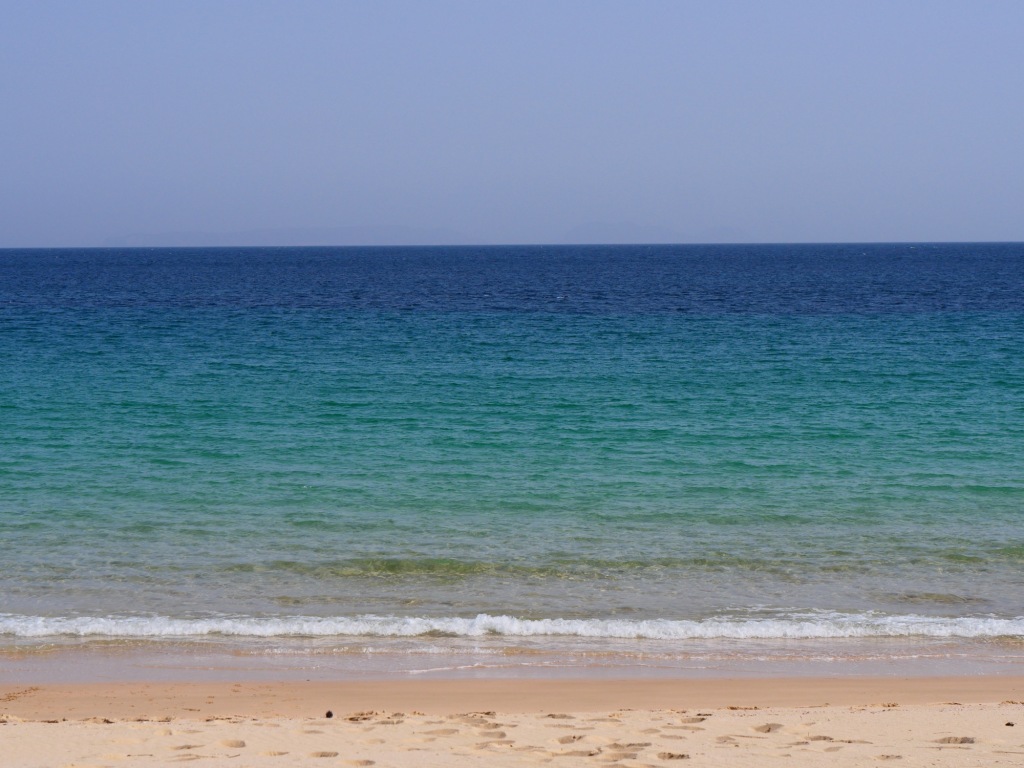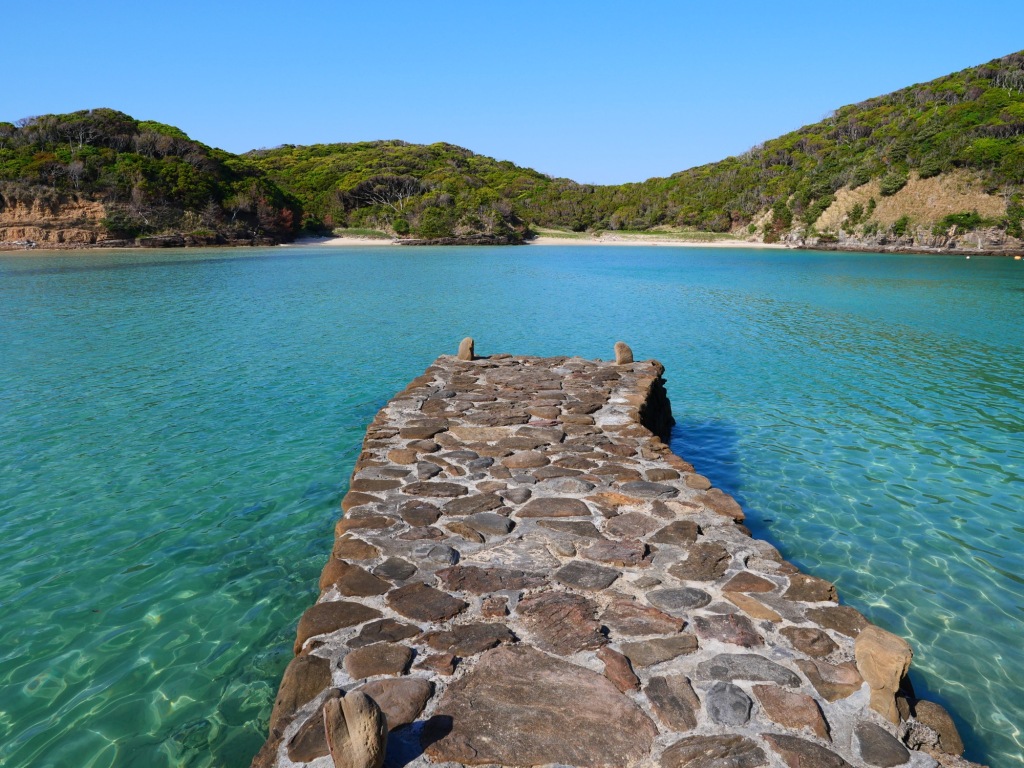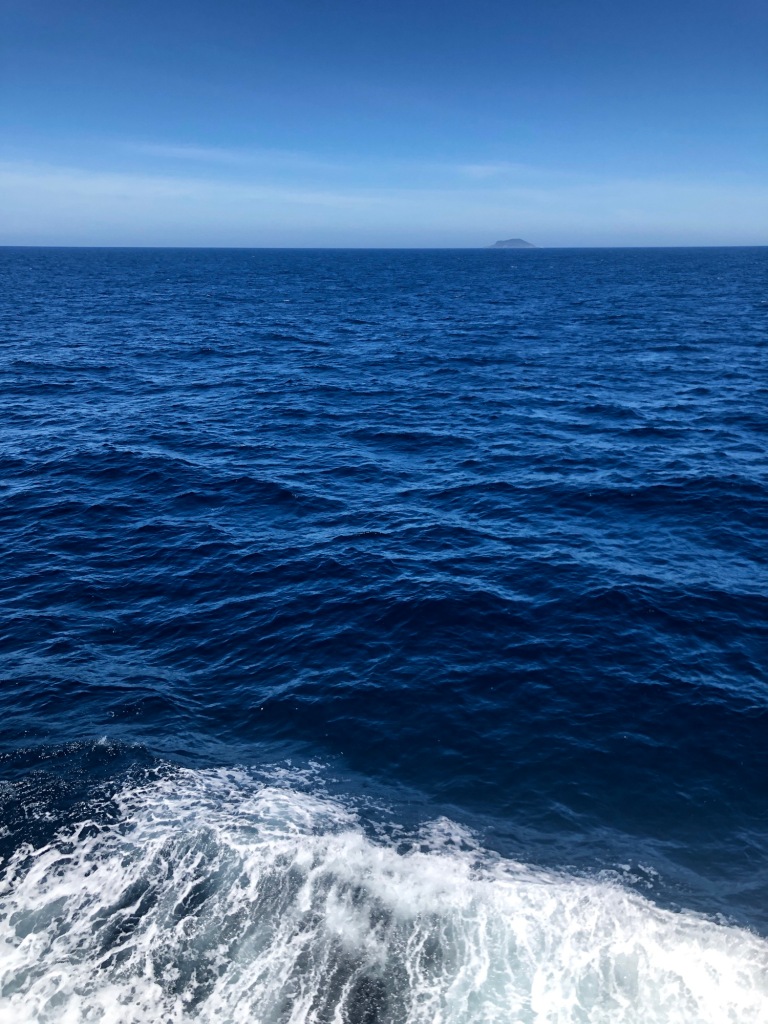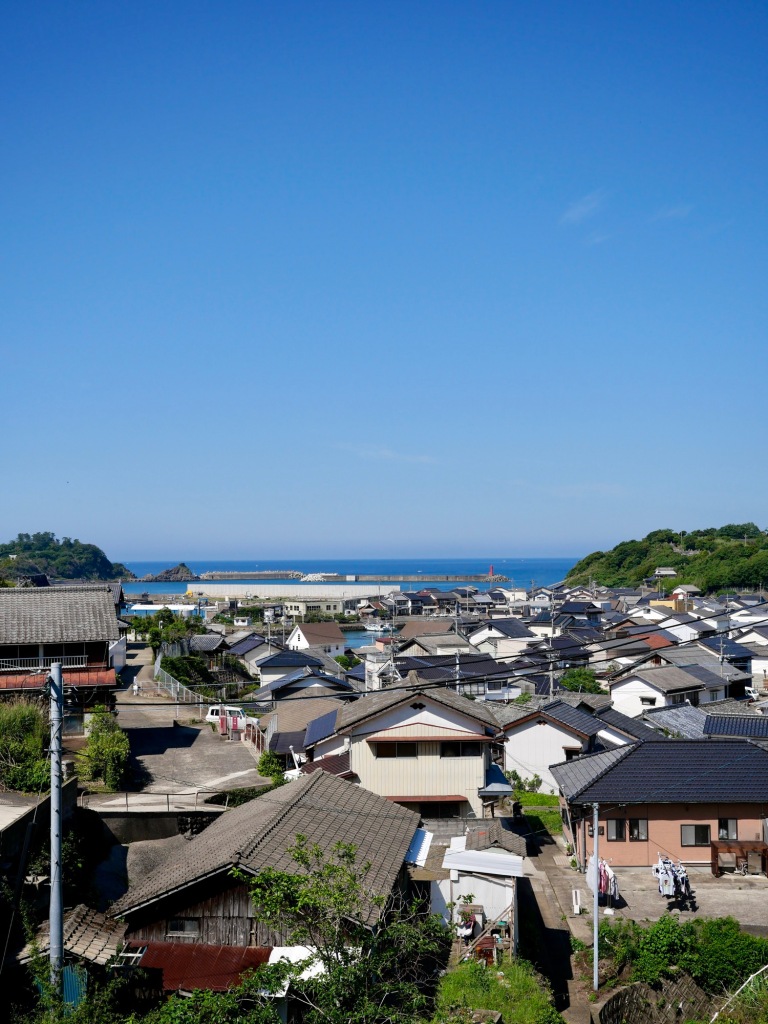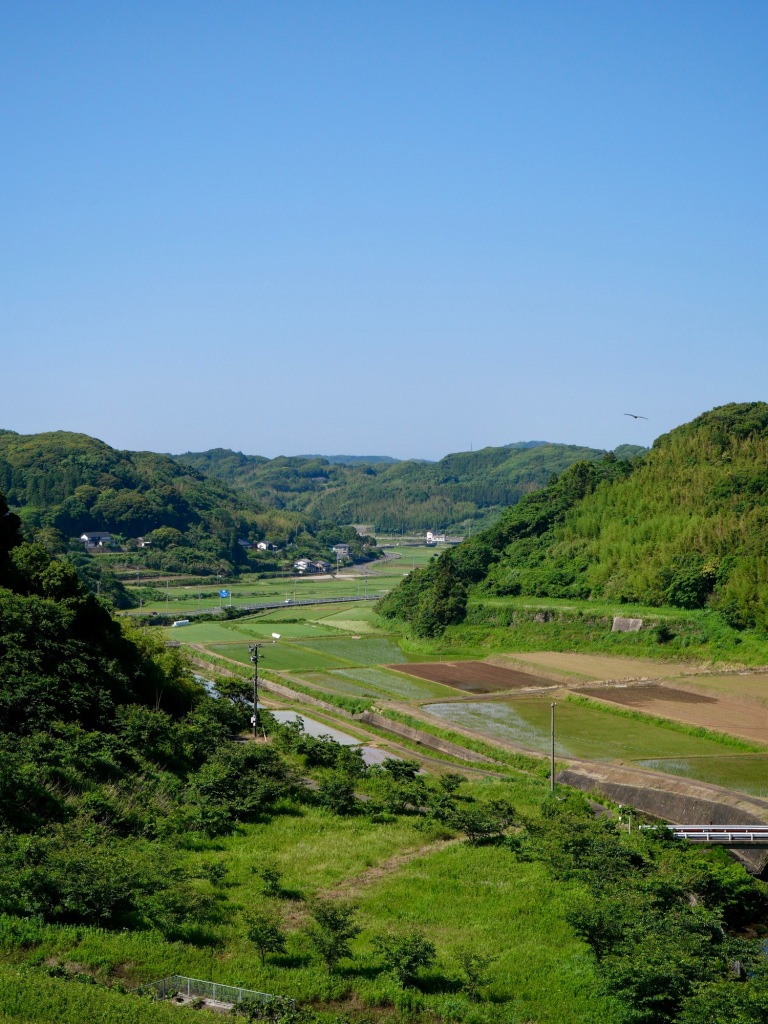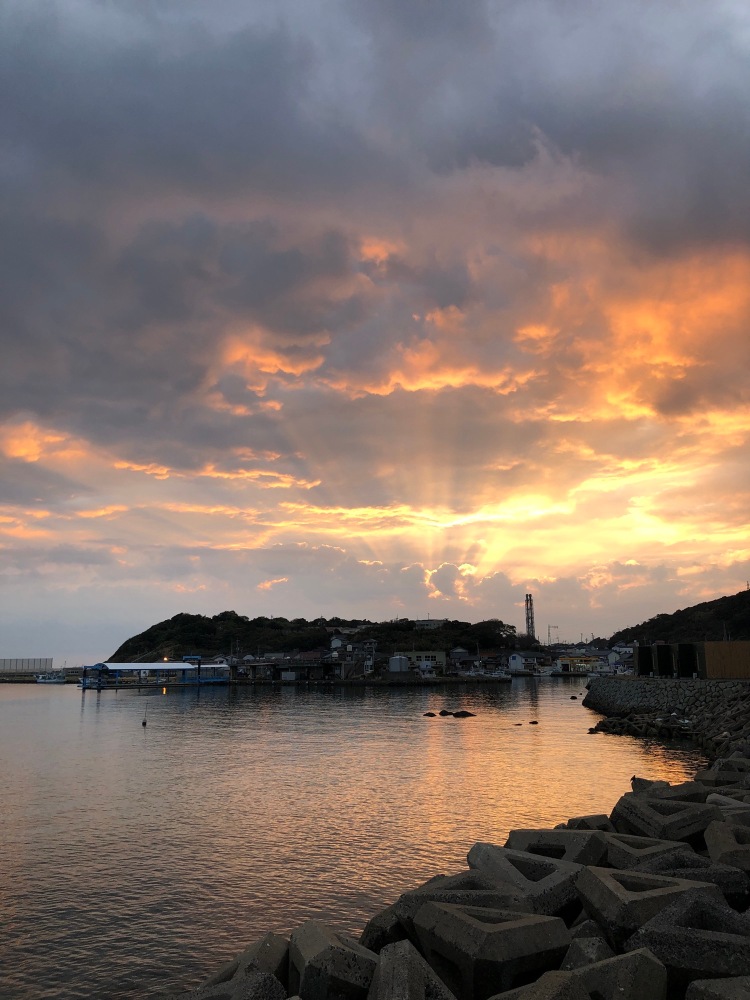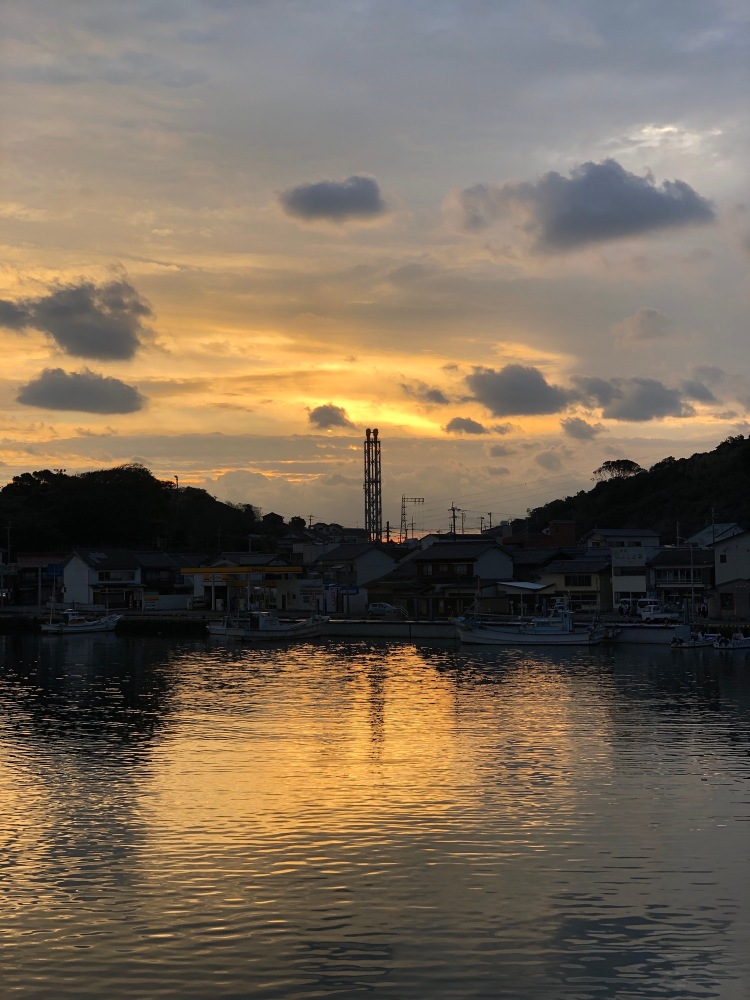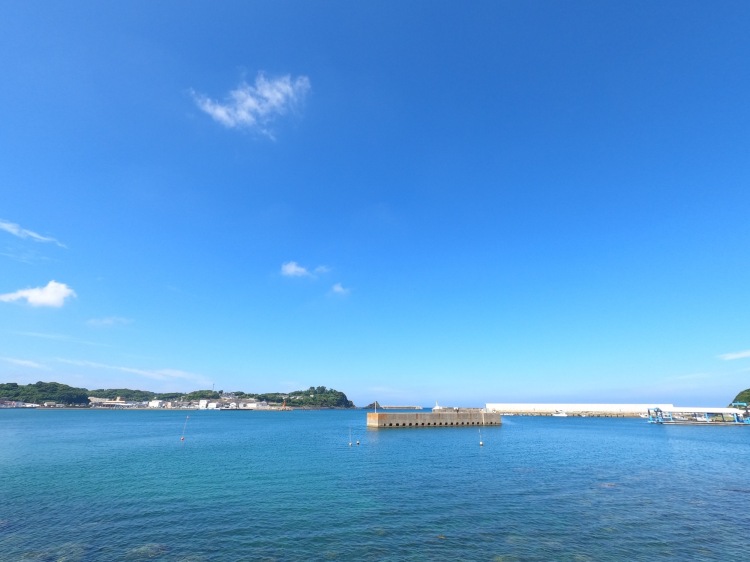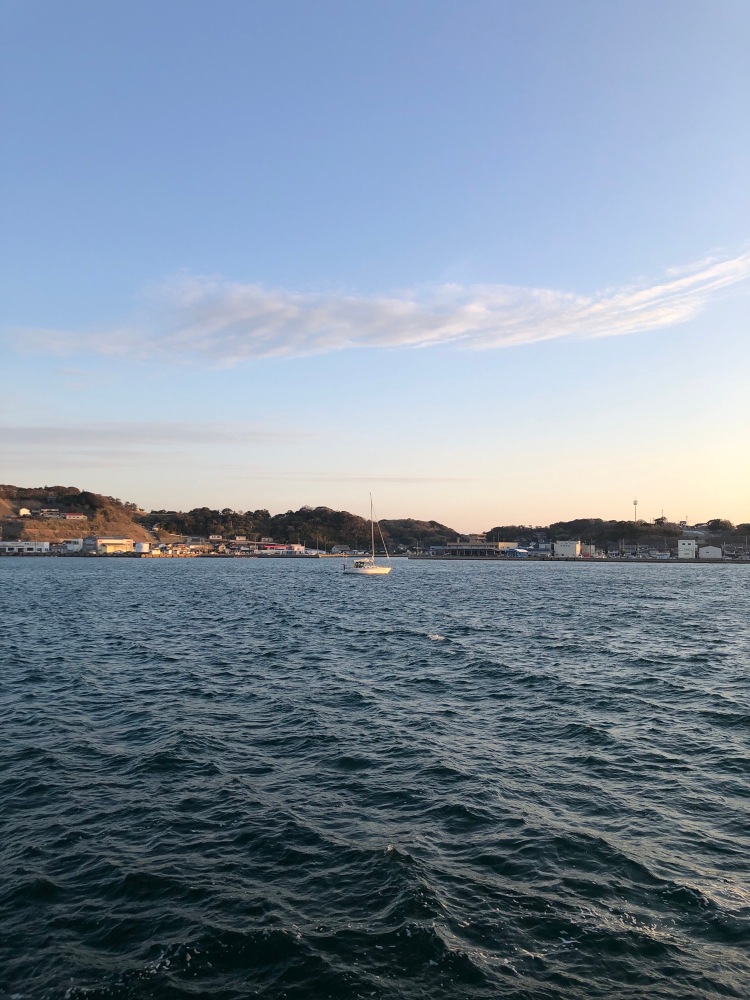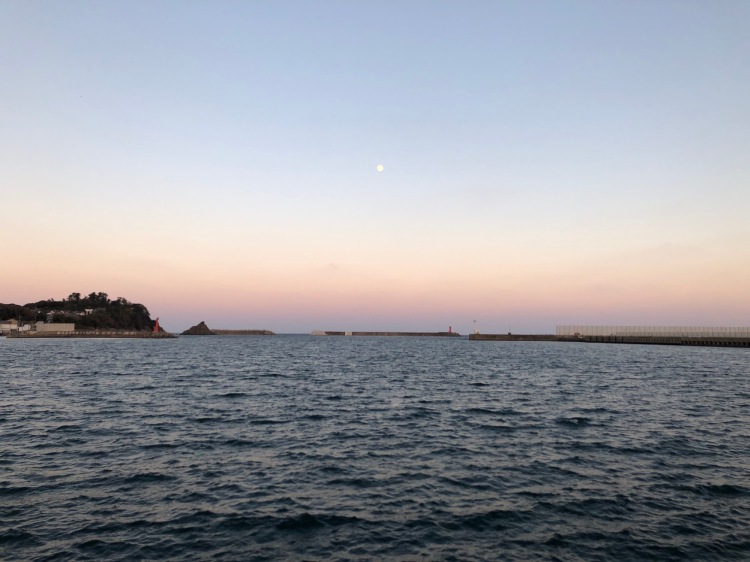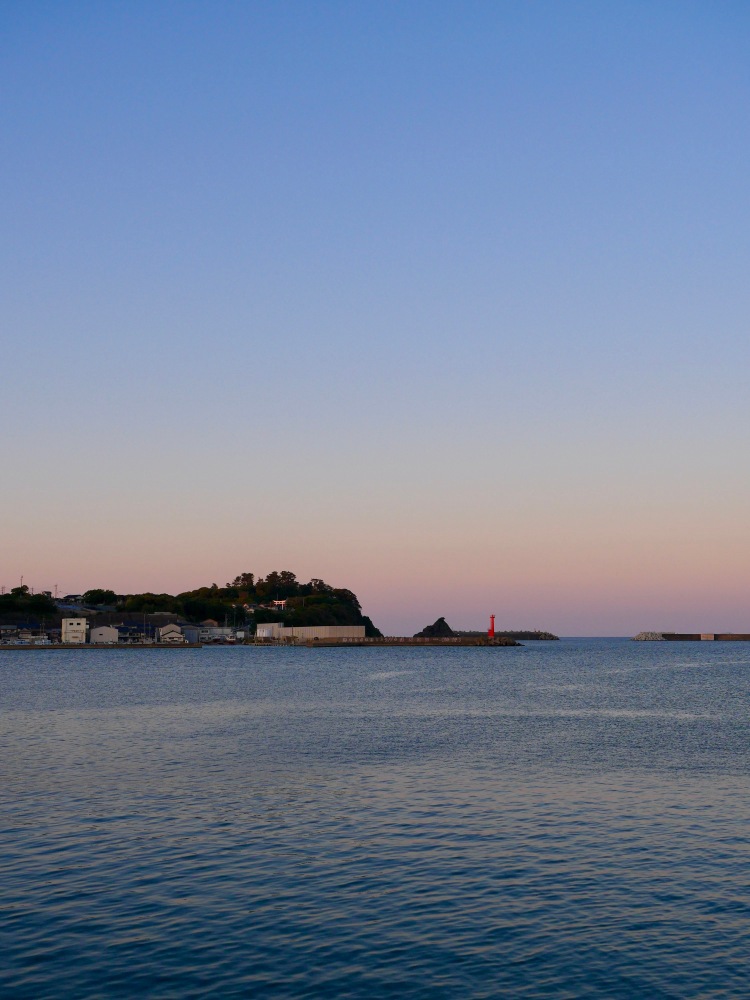Between May 2020 and June 2021 I moved my family to the remote island (ritō 離島) of Ikijima. To find out why, check the FAQ. Three months after leaving Japan and returning to Canada, I would like to reflect on that year.
Real quick though, in case you don’t already know:
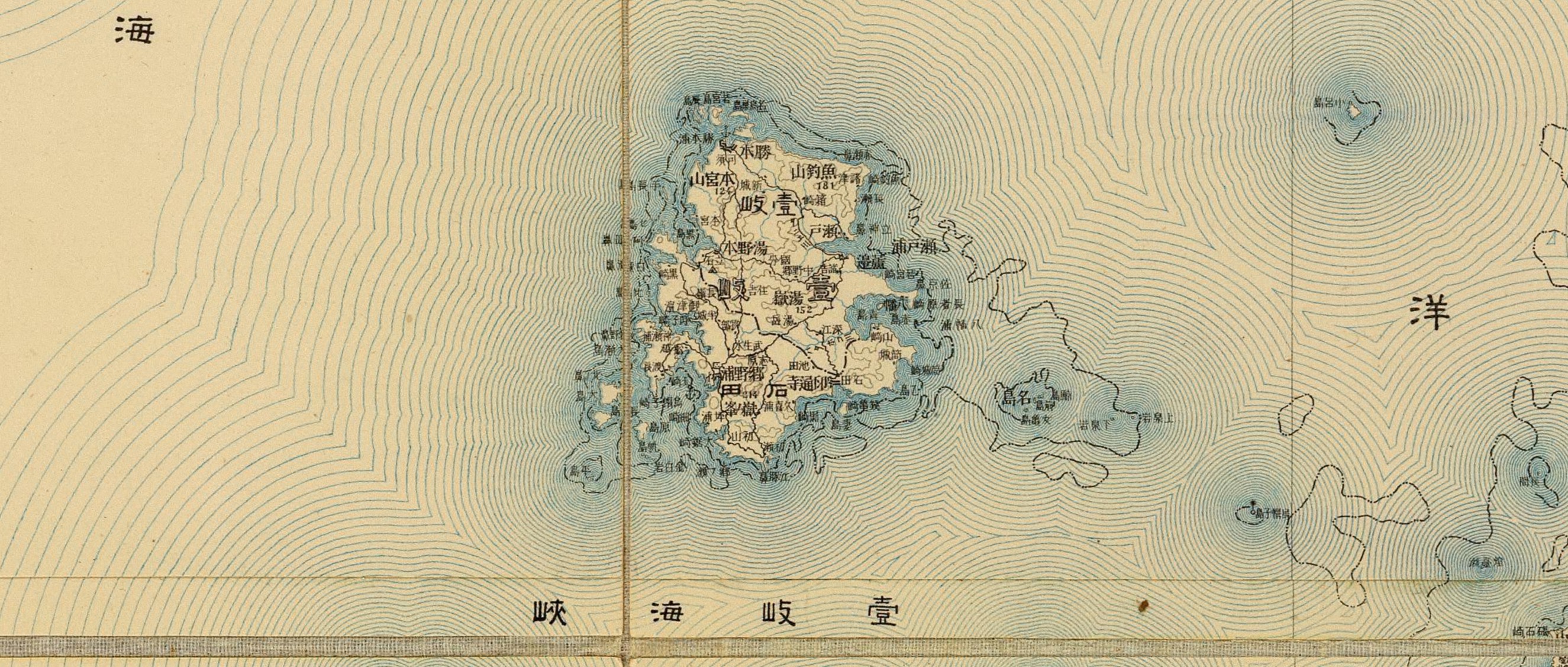
One of the most visceral memories I have of living on Iki is the constant wind. Visiting Hawaiʻi for a few days in 2018 I got a taste of island wind, but after spending a year on a relatively flat island with no protection, you realize how constant the wind is on the ocean. No wonder that kites are a common pastime across all the remote islands of southwestern Japan.
Negative things always stick in the mind. Otherwise the first thing I would say that really delighted me living on an island was the colour of the ocean. I would sit and marvel at the water, listening to it constantly touching the shore — sometimes lovingly, sometimes angrily. The sea is temperamental, you can see it in the array of shades and hues it shows you.
Before moving here, for me Kyushu was always “south” a synonym for “warm.” Language, like everything, is relative. Kyushu is more west than south of Kyoto, and Iki is actually quite mild. During Obon we returned to Kyoto and nearly broiled in the 44 degree weather. Iki was a temperate 34. In fact, Iki was often downright cold. The wind constantly blew on our house next to the ocean. During Typhoon Haishen we were really worried and evacuated to the local elementary school for protection. It even snowed in the winter! Iki was not as warm as we imagined. The weather is one of the big differences in that dichotomy of Northern versus Southern Kyushu.
Also, for being surrounded by water, the amount of time for swimming is quite limited. Hardcore surfers with their wetsuits were out in the water quite a bit. Between jellyfish season, rainy season, typhoon season, and the winter months, regular people only go in the water in the middle of summer. In fact, most of the locals don’t swim at all. Surrounded by the blank space of ocean it is like their vision is constantly turned inward toward the land. It seemed like we were the only ones enjoying the beach. Due to coronavirus the beaches were pretty empty and we would enjoy the broad white sandy expanse with like nine other people.
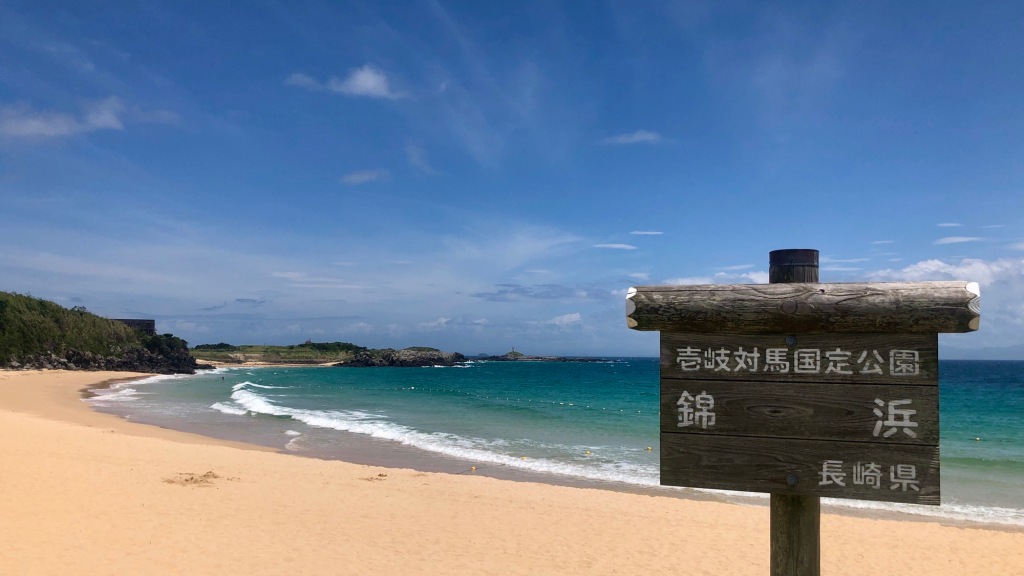
So far I have spent quite a bit of time on the weather and outdoors. That is because my year on the island was actually quite lonely. Coronavirus made sure people mostly kept to themselves. We were only able to experience the lively Water Festival and “Chinchirigangan” on YouTube. Tourism was at a standstill. Many people just closed their shops to wait things out. The cost of living on Iki is very low. Since it is a self-sufficient island, with all the key crops grown here, many people trade vegetables and rice amongst themselves. You can go to the ocean to catch fish anytime. Neighbours were constantly bringing us freshly caught fish (often already cleaned, and sometimes breaded, and sometimes already deep fried!), fruit, and vegetables. My wife started her own garden to participate in the “gift economy.” Closing up your shop for a year didn’t seem like a particularly difficult thing to do for many people in the community. I wonder how they will do as the pandemic continues, and remain closed for another year?
In October I started volunteering at the Ikkikoku Museum. Maybe they would need a translator if an English-speaking guest or dignitary arrived? Plus I could spend more time at that fabulous museum doing my own research. Corona intervened again, ensuring there were not many events, so I wasn’t able to go very often. Luckily the museum still ran the annual off-site, something they put on in appreciation for local volunteer guides. Normally the guides go off-island for a couple of days, but corona kept them home, which was great for me: being on a bus full of history nerds touring around the more obscure historical spots in the community? What could be greater!
The main motivation for volunteering at the museum was to boiled down to the following: I am a social person and being stuck in my house or alone on the beach was getting to me; and I was shocked shocked at how bad my Japanese had gotten.
I lived in Japan on and off for 8 years prior to coming to Iki. But I had spent the last ten years in Canada, focused on a startup career, almost completely severing ties with Japan. I regret that now. Discovering how desiccated my Japanese had become was humbling, especially as I struggled reading Japanese sources for my research. It did not come back as quickly as I thought it would.
It was also humbling returning to the country as a more mature person. In my twenties I had the brimming overconfidence of the typical mediocre white man. Looking back, it is pretty embarrassing. Returning to Japan in my forties, after a decade away, it was like rediscovering the country all over again. I know so little! This self-recognition was both invigorating and depressing. Pulling away the curtain on an obscured passion for Japan triggered the remorse of having ignored that part of my life for so long. I won’t let this happen again.
Loneliness, remorse, realization and self-actualization… oh the wonders you will discover spending a year on a remote island!
Talking to neighbours, standing outside their homes cleaning fish, or just to see who else is out there, the weather is a common topic. Not just because I am some foreigner and no one knows what to say, but weather is crucial information for those on the island. High wind speeds kicked up the waves so much that the jetfoil would be cancelled. When it was really bad and no ferries could make it to the island, there would be a run on the supermarkets and the three convenience stores for packaged pastries. It might take a couple of days before I could get my churros! Newspapers and mail could not be delivered. I had the plane to Nagasaki cancelled on me while I was in the waiting room at the airport once. The direction of wind on the nightly weather forecast was probably the most important information for the next day on Iki. I learned how to read a windsock.
I picked up many skills actually. Fishing with a five hook line. Planting rice. Driving on extremely narrow island roads came in very handy when I was travelling all over Kyushu, going over super narrow bridges or going off the beaten path to find the where tea was planted in Japan for the first time. These are just the skills you pick up in rural areas, different to the ones you acquire in the big cities of Japan.
I had always lived in big cities, but going to a rural area was very eye opening. In a sense, it was like going back in time. Deflation has hit the countryside a lot harder than urban areas so prices were from another era. Not just compared to Canada but also relative to urban centers in Japan. The technology in use, the laid back attitude… nothing needs to operate at scale in a low population area. Everything is done through personal relationships thus there is no need to adopt any fancy tech for many things. The community continues to run fine on human power. This gives one a sense of lack of progress. The rat race of the city requires processes and machines to keep things functioning. Soon it feels like we are moving merely for the sake of The System. In the countryside, you move because of and with the help of everyone in your community. I think this is one of the appeals of people that do a “U-Turn” (raised in the country, go to the city, and come back to the country) or an “I-Turn” (raised in the city, but escape it for the country).
On Iki fishing and farming are the main industries. There are also key services like the ferries, postal, hospitals, schools, utilities and government. Service workers at the supermarkets and other retail stores make up the rest of the jobs. It dawned on me how much of the labour in the community was based simply on supporting the community. I am used to remote communities in British Columbia being based first and foremost on the exploitation of natural resources (eg. mining or oil). Sure it had some exports, but Iki was a largely a self-sustaining island. People had been living in communities on here for literally thousands of years. It seemed much more natural somehow.
Of course, depopulation is a big problem, just like in all the rural areas of Japan. The population of Iki is 24,000 people, so fairly large compared to other islands nearby. But in the late 60s they had about 50,000. In two generations the population has halved. Kids graduate from one of the two high schools and go to the mainland for higher education. Most don’t come back. Middle schools on the island have shut down, and the four large towns of the island all merged into a single “Iki City” in a government services cost cutting measure. My kids’ elementary school had 48 students from Grade 1 to Grade 6. In out fishing village there were over 130 abandoned houses. I had the opportunity to do a walk through of one that was being reclaimed by a local non-profit that restores abandoned houses, and it was a shock. The elderly man who last lived in the house was moved into a senior facility five years previous, yet all of his belongings, plates and knickknacks and even the butsudan altar with photos of what must have been his wife and ancestors, was all there in place, encased in dust. Many abandoned houses are just left like this, with no one to clean up.
There is a certain commonality amongst all rural places — and I think this extends beyond Japan. Coming to Iki, seeing how the small town people interact with one another, their large extended families, their attitudes to the big city, the freedom my kids had running through the bush always under the watchful eye of a neighbour, I actually felt a strange sense of being comfort. Despite being in a foreign country and entirely new remote island environment, I kind of felt I had returned to the small town in the Rocky Mountains where I grew up.
There was an unexpected symmetry with my wife. She, a worldly city girl educated in private schools and raised on revolutionary feminist philosophy, was in complete culture shock on the island. Yet, after raising our kids in Canada and navigating the completely foreign world of the Canadian education system (all in English), she was so happy to see our kids march off to school with their randoseru backpacks, learning the songs that she too learned as a child.
One of the challenges of international relationships is overcoming the very different childhood experience that each of you have growing up. This is especially important when it comes time to raise your own kids. To think that a remote island in the Korea Strait would be the place that an international couple could each actually connect their own childhood experience — that natsukashii 懐かしい feeling! — with their kids is just mind-boggling to me. What a treasure of an experience.
Since we are talking about kids and school, I would just like to mention that I was very delighted at the quality of the school on Iki. The teachers were amazing. Japan does a very good job to ensure that education standards are kept up no matter how remote the community. And my kids made me proud at how well they adjusted to going to school in a foreign environment, how they overcame their struggles and excelled in their schoolwork, and made friends for life. Now I am getting all verklempt. You go ahead and go onto the next section while I take a moment here…
As the weather cooled in the fall coronavirus got bad in Japan, especially in Fukuoka which was the nearest city by jetfoil. There were only a couple of breakouts on the island while I was there, but one happened just at New Years, preventing us from going back to Kyoto for Oshōgatsu. That winter I spent a total of four months on the island without going anywhere. (Obviously not conducive for someone who came here originally with the intention of writing a travelogue!)
Despite not being able to go anywhere, we didn’t actually travel all that much around the island. Surprisingly we spent most of our time in our small little corner. I was in the house reading quite a bit, doing book research as I could not do field research. Over the year I got to see many sights on the island, but somehow never got to see them all. We had been saving the last few major sites for the summer, which we were very much looking forward to. Last year we were newly settled and still figuring things out. This summer we were going to enjoy Iki to the fullest before leaving in late August back to Kansai. Unfortunately we had to say goodbye suddenly. My last few days I drove alone in the car with my GoPro on the dashboard, capturing all the roads I had driven so many times, and the spots we commonly went to. I wanted to get this on the record not just for myself, but to use these high res videos to give my dad a driving tour of the island from the comfort of his own living room (unfortunately I never got the chance too since he died so quickly after we got back to Canada. But I will still process and upload these “Driving Iki” videos for others. You can see the first one here.)
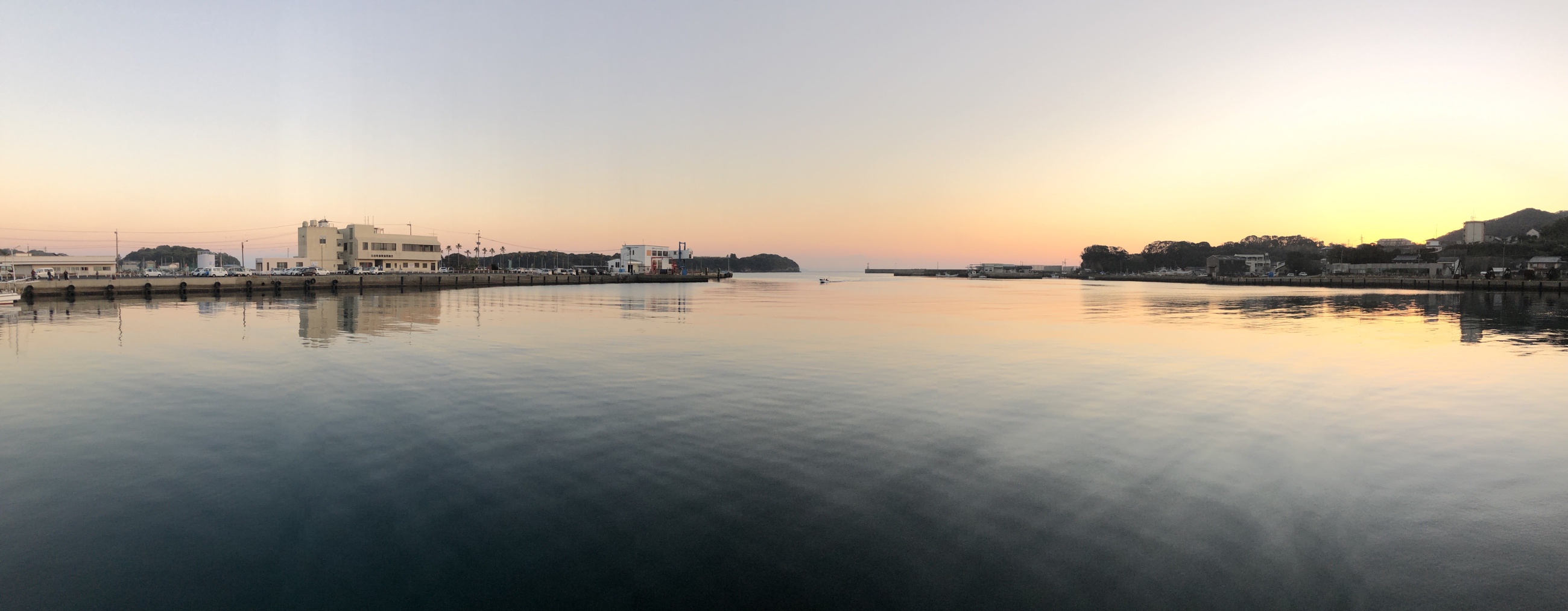
Many things were left undone on Iki. The pandemic interfered with much. I had gone to Iki with five personal goals, none of which I completed satisfactorily. I would like to share them here:
- Productivity: This means working on the book, a travelogue and popular history of Kyushu highlighting all those ways Kyushu has contributed to Japanese history and culture as a whole. Although I was able to travel quite a bit of northern Kyushu between domestic travel bans, I was grounded for four whole months. Also, the pandemic made it hard to meet with and mix with locals when I did travel, hindering “serendipitous discovery” — the best part of travel. It wasn’t like I made zero progress. I accomplished much research, wrote about 30,000 words, and took over 10,000 photos and videos. It is a good start that I need to follow through on over the coming years.
- Spirituality: I was hoping to join a local temple and get direct meditation instruction, but the temples had shut down all events except funerals. Although, I was able to develop some regularity to my home meditation practice.
- Physical: With no job and all the time on my hands, getting some regular exercise seemed a no-brainer. Of course, the gym was closed and Iki was the first place I had to live the “car life” so I gained a bunch of weight and lost a bunch of muscle. I joined the judo club with my kids, but had my ribs crushed by an exuberant 18 year old black belt, so had to take a few weeks off. A friend gifted me a bike, and while I took some rides, it was so goddamn windy that riding was not really something I found myself excited to do.
- Culture: At long last I was looking forward to properly learning the tea ceremony. This was not only to inject a much needed dose of culture into my life, but also an opportunity to interact with others and use/improve my Japanese. All cancelled.
- Japanese: As mentioned above, I didn’t interact with very many people, so I could not improve my spoken Japanese much. However, I did start studying for the JLPT and read the newspaper fairly often, so I did make some improvement.
While none of my goals were achieved, I did gain a healthy journaling habit, learned a lot about myself, was able to re-connect to my passion, and healed after a year of corporate pain. I am happy with that progress, but mostly, I am very grateful for the opportunity to take a mid-life retirement.
I wasn’t quite ready to leave Iki, and I definitely was not ready to leave Japan. But I return to Canada with a renewed will to maintain my connection to Japan, it’s history and language.
I will be back.

